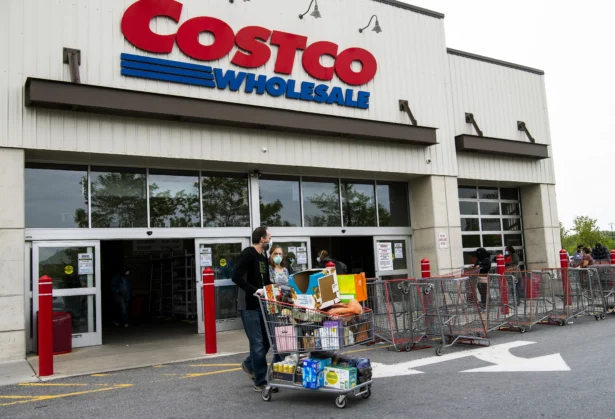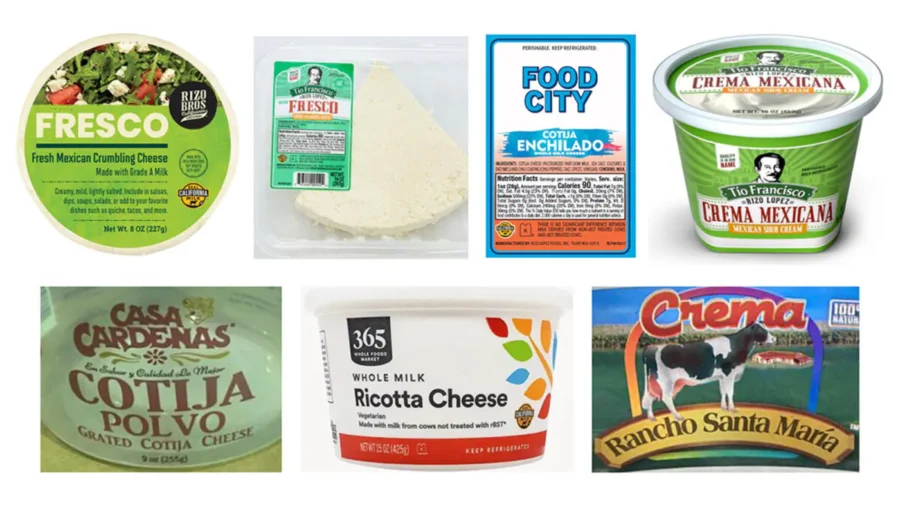A recall of products containing cheese linked to a bacterial contamination reported this month expanded to salads and taco kits, officials say.
The company, Rizo-Lopez, based in Modesto, California, recalled dozens of products related to the recall, saying that a listeria bacterial outbreak forced it to do so.
According to the U.S. Centers for Disease Control and Prevention (CDC), 26 cases have been reported. Meanwhile, 23 people have been hospitalized and two deaths have been associated with the outbreak since early February.
States that reported cases include Arizona, California, Colorado, Florida, Georgia, Nevada, North Carolina, Oregon, Tennessee, Texas, and Washington, the CDC says.
The types of cheeses that are impacted are blanco suave, cotija, oaxaca, panela, queso crema, queso fresco, queso para freir, queso seco, requeson, and ricotta, the agency says. They were sold around the United States under several brand names.
The names include Bright Farms, Campesino, Casa Cardenas, Dole, Don Francisco, Don Pancho, Dos Ranchitos, El Huache, Food City, Fresh & Ready Foods, Fresh Express, H-E-B, Jack & Olive, La Ordena, Marketside, Maverick Foods, President’s Choice, Ready Pac Bistro, Rio Grande, Rizo Bros, Rojos, San Carlos, Santa Maria, Sprig & Sprout (S&S), The Perfect Bite Co., Tio Francisco, Trader Joe’s, and 365 Whole Foods Market.
They were sold at retailers such as Albertsons, Bristol Farms, Carrs-Safeway, Costco, Eagle, Lucky, Pavilions, Randalls, Safeway, Save Mart, Shaw’s, Sprouts (S&S), Star Market, Stater Bros. Markets, Tom Thumb, and Vons, according to the U.S. Food and Drug Administration (FDA).
More details about the products, including the UPCs, sizes, and best by dates are included on a separate FDA page.
Consumers have been warned not to serve, eat, or sell or serve and are instead advised to throw them away. Those with suspected symptoms of listeriosis, caused by the bacteria, should contact their health care provider, said officials.
The FDA said that a sample of Rizo Bros Aged Cotija tested positive for Listeria monocytogenes after it was sampled by a state health agency in Hawaii last month. In response, Rizo Lopez Foods initiated a recall of one of its products in January, although both the CDC and FDA later reported more illness, expanding the recall further.
The FDA said it “reopened the investigation in January 2024 after new illnesses were reported in December 2023 and whole genome sequencing analysis of the cotija cheese sample showed that it is same strain of Listeria that is causing illnesses in this outbreak,” according to a release.
Of the people interviewed by federal investigators, 73 percent said they had queso fresco, cotija, or other similar cheeses.
An on-site inspection at Rizo Lopez Foods was also initiated by the FDA this month. The agency said that “an environmental sample collected during that inspection tested positive for Listeria monocytogenes,” adding that it is the same strain of the bacteria causing illnesses that lead to the recall.

Earlier this month, officials said that the outbreak has lasted for about a decade. The CDC previously investigated cases of food poisoning tied to queso fresco and other similar types of cheese in 2017 and 2021, but there was not enough evidence to identify a source.
What Is Listeria?
Listeria infections can cause serious illness and, in rare cases, death. Women who are pregnant, individuals older than 65, or those who have weakened immune systems are particularly vulnerable. Symptoms—like muscle aches, fever, and tiredness—usually start within two weeks after eating contaminated foods, but can start earlier or later.
The bacteria, according to an FDA webpage, “is generally transmitted when food is harvested, processed, prepared, packed, transported or stored in environments contaminated with L. monocytogenes.”
“Environments can be contaminated by raw materials, water, soil, and incoming air. Pets can also spread the bacteria in the home environment if they eat food contaminated with L. monocytogenes,” it says.
Meanwhile, the CDC describes it as a “serious infection” and that “an estimated 1,600 people get listeriosis each year, and about 260 die.”
“The infection is most likely to sicken pregnant women and their newborns, adults aged 65 or older, and people with weakened immune systems,” the CDC says. “Pregnant women typically experience only fever and other flu-like symptoms, such as fatigue and muscle aches. However, infections during pregnancy can lead to miscarriage, stillbirth, premature delivery, or life-threatening infection of the newborn.”
The Associated Press contributed to this report.
From The Epoch Times


